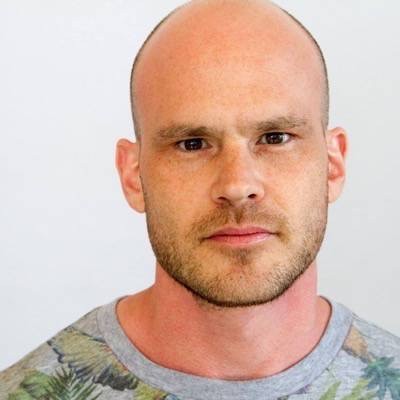The Unruly Discipline
by Fredric Sinclair
 It starts with solitude. And doing nothing. In bed before sleep. Daydreaming at work. Sitting on the subway. That’s when writing begins, when solitude is more madhouse than meditation. I honestly don’t know exactly how ideas form out of the maelstrom of moods, intimations, abstractions, hormonal distractions. The barest granule of a thought is there, has always been there, a speck of dust. It accretes and attracts and repels, and if the right conditions are present, it will crystallize. Falling to me now, it gets my attention.
It starts with solitude. And doing nothing. In bed before sleep. Daydreaming at work. Sitting on the subway. That’s when writing begins, when solitude is more madhouse than meditation. I honestly don’t know exactly how ideas form out of the maelstrom of moods, intimations, abstractions, hormonal distractions. The barest granule of a thought is there, has always been there, a speck of dust. It accretes and attracts and repels, and if the right conditions are present, it will crystallize. Falling to me now, it gets my attention.
Thinking is not a choice. Learning to write thoughts down is, for they vanish like dreams, even coming before sleep as they so often do and I’m stumbling around in the dark for my iPhone to desperately tap them into EverNote. What I type is usually laughable. A few discombobulated words strung together to serve as a lifeline back to a place of enormous ephemeral significance.
Then comes the rain. Life trudges on. And whatever this feeling was is beaten down in puddles.
The thoughts that turn into stories are like those quirky places I keep returning to throughout life—that ratty old café, that lookout in the park, that village on a peninsula—returning obsessively, for reasons I do not understand. They turn over in my mind variously during days and nights sometimes for weeks or months before anything concrete happens, or I’ll get a few beginning paragraphs down and feel triumphant that I actually wrote something and walk away from it (weeks, months).
I’ve found a kind of unruly discipline doing this. I begin a lot of stories and walk away from them and then rediscover them later, and through the rediscovery it’s like I’m meeting an old friend with whom I’m very excited to get reacquainted. We have a lot to talk about and we go out and get wildly drunk and black out and somehow in all the madness we had a baby, or really created a whole new universe, which is a mighty strange thing to do but then again this is an imaginary friend, writing, and when we write a story our number one priority is to create a convincing imaginary universe (which is why so often you just end up in a dark alley covered in your own imaginary vomit wondering what the hell happened).
I think it’s fitting I don’t remember writing the guts of most of my stories. Conception should happen in the dark, with fumbling bravado and breathless misgivings and no real sense if anything happened at all.
And then I will have a sense. A very palpable sense. At some point, I will sense that something indeed has happened. And it should keep happening. And I should make it happen even better. And while there are flaws in the happening, making it happen better is worth more work than I ultimately think it deserves. Then it does deserve it, and I work harder.
And there is a point somewhere in there, fleeting, when I realize silly daydreams are anything but, so I should stop thinking they’re silly or what I’m doing is silly. Writing is deadly serious, as serious as love—this courtship of ideas, this wooing of words. And if it comes off at all, it does so with a zealous passion that has no appeal to reason. And many times it won’t come off. It’s unreasonable. These lovers, they won’t work. Until they do.
Read "Holy Water" by Fredric Sinclair.

Lovely essay on the writing process, it’s depths and hidden currents. Superb line: “Conception should happen in the dark, with fumbling bravado and breathless misgivings and no real sense if anything happened at all.”
By Jason J. Marchi on May 29 2016